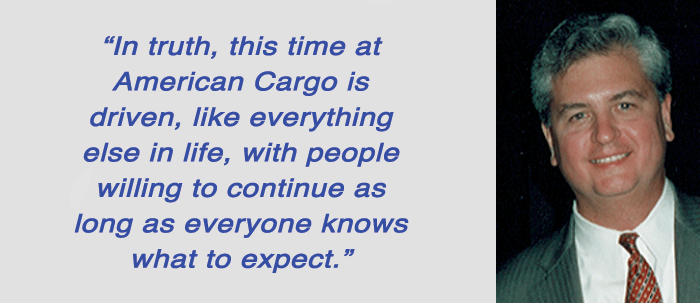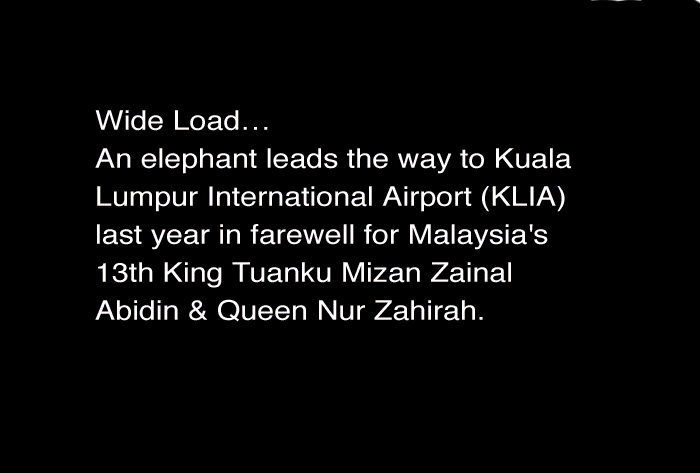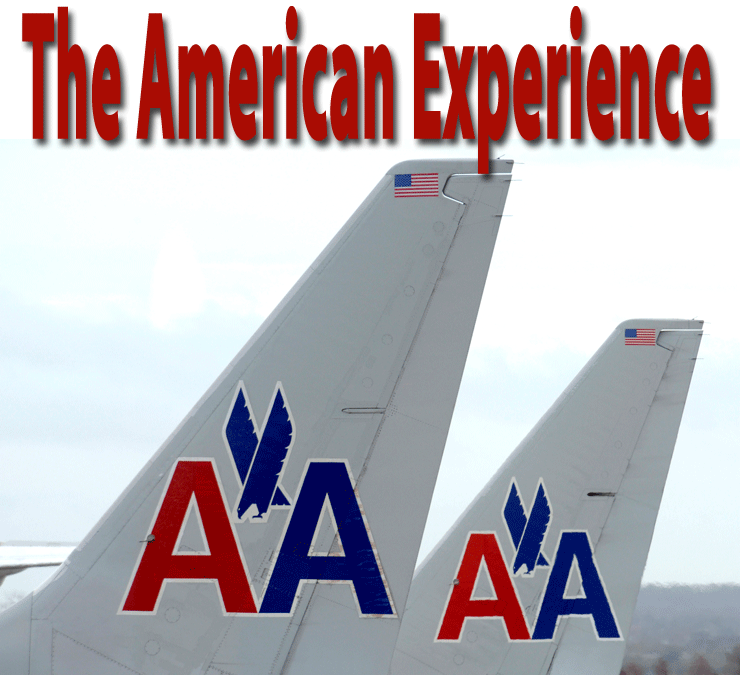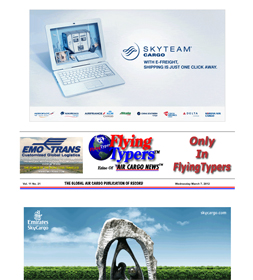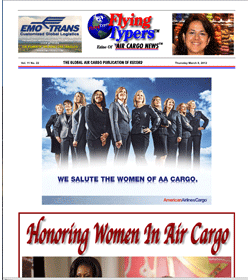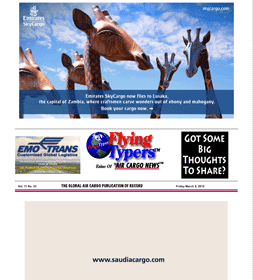| 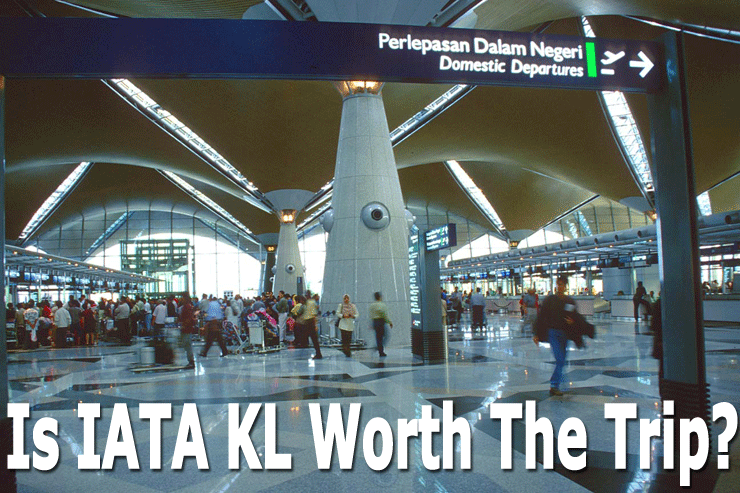
Here we go again, as the air cargo
industry hosts another trade show somewhere, three or four time
zones away from our regular life, with 200-plus of our closest friends
wrapped in an air conditioned oasis for a couple days, thinking
big thoughts and looking for new possibilities.
This week it is IATA World Cargo Symposium
(WCS) Episode Six in Kuala Lumpur.
This edition of WCS may be a tough
act to follow after WCS met last year in Istanbul.
Playing against glorious Istanbul,
WCS 2011 was an unbridled success.
In 2011 business was building and
everybody was grabbing at the big financial comeback.
This year we are in slowdown mode,
so the back drop for a big industry gathering in a faraway place
plays against air cargo austerity moves, with most projections calling/hoping
for a rebound in business during the second half of the year.
But people that we talk with on the
ground who have knowledge about these things tell us that KL is
the place to be, where many young and enthusiastic minds in marketing,
science, technology are coming from these days.
We keep thinking and hoping that some
of those people will be featured at IATA WCS, but are taking nothing
for granted.
It’s been widely written over
the years that air transport, while vital, has not only failed to
meet profitability measurements but has actually been a losing proposition.
Anything vital makes us all feel good, needed and important, and
deserving of our place in the big scheme of things. Generating red
ink? Not so much.
How long can this continue? Well,
it’s been going on for a while, with boom and bust cycles
that I witnessed over the last forty years with deregulation, contractions
and consolidation, mergers and restructuring of all sorts. There
is constant need to secure talent and resources to run the capital-intensive
business of an airline, with all the wild fluctuations in the cost
of fuel, the impact of unforeseeable natural disasters, political
upheavals and, last but not least, supply and demand.
In the end, as hard as it may be to
admit, air transport is there to serve the global economy and the
size of that pie, which depends on air transport, isn’t growing
and capacity has been cut.
Handheld devices such as smartphones
and tablets, hundreds of which can be presently packed in a single
pallet position, are eclipsing the computing power of a single mainframe
computer that took that pallet position 25 years ago.
At the same time, price and competitive
pressures continue to erode whatever slim margins are squeezed out
from time to time.
No question—it’s a tough
business all right!
Efforts have been underway for years
to optimize processes, increase efficiency, enhance productivity
and eliminate paper, all with the elusive objective of reducing
costs in mind. The question is: how well has this collective nibbling
at the edges and incremental change turned out to be? Has a better
mousetrap guaranteed that profitability can be sustained? Is there
a ceiling for what air cargo shippers are willing to pay, regardless
of how good, reliable, and fast the service that air transport can
provide?
Well-intended initiatives including
Cargo2000, e-freight, and e-AWB have been around for a good while,
but in the end, while undoubtedly having the prospect of evolutionary
change, they do not really bring about the major structural changes
that can make a difference in the order of magnitude needed to safeguard
the future of the industry.
And the main players? Joined at the
hip for decades, forwarders and airlines and the respective industry
associations have battled each other, and then later joined forces
to try and address the challenges they all face in today’s
marketplace.
It’s pretty clear that very
different solutions are required to meet these current tough times.
Much is expected of these bodies, whether it’s GACAG, IATA,
FIATA, or TIACA, which we forward refer to as GIFT; the mills grind
slowly when consensus is the basis for change.
Given the speed of change, we can
only ask: is there time to wait?
The forwarders and the airlines are
conflicted, and understandably continue to pursue what can be described
as traditional, or rather old fashioned, jealous self-interest,
which is not serving them well because it is not based on one common
objective—beyond lip service—and that is to do the best
for the shipper on whom everyone depends.
Finger pointing and recriminations
are age old in this business and despite the fact that each has
a distinct function to fulfill, real transparency and true cooperation
is not necessarily the norm.
The forwarders often mention they
have also another significant business—ocean freight; guess
what, the combination carriers have a passenger business, too!
It is instructive to try to compare
profit margins; the impression is that clearly the forwarders are
the better business people, but as the saying goes—it’s
complicated! In our view it is time to think out of the box and
come up with approaches that enable changing the business model.
With the IATA World Cargo Symposium
meeting this week in Kuala Lumpur, a look at the program reveals
some changes in format, yet as one of the key stakeholders puts
it, will IATA WCS 2012 be “another of those shared rituals
where the most exciting topic is the shape and color of this year’s
Christmas tree?”
Talk about conflicted, and as welcome
and spot on as it is, this is coming from someone who has been putting
quite a bit of work and effort into making the GIFT work.
Reading Oliver Evans’ blog at
Swiss World Cargo as he calls for a revolution to “inspire
the bigger changes we all want to see” and “Momentum
and determination for the radical transformation our industry so
obviously needs,” we couldn’t agree more with the conceptual
clarion call.
But we are less confident of its outcome,
given the venue and the past twenty years.
And getting rid of TACT is hardly
the industry’s biggest challenge, as symbolic as it may be.
Proposed changes to e-AWB based on “… feedback from
the IFCC will be considered by the CSC;” still, with no forwarder
representation present, and “considered” doesn’t
always mean “adopted.”
But for us and for others spending
money for one week of, among other things, major jet-lag, the question
that needs an answer is: is an expensive annual pilgrimage worth
luxuriating for nearly one week in a shared sense of “we are
in this together?” We have asked year after year what the
net result and measurable gain is for those attending, which can
be brought home and used to make a worthwhile, commensurate change
in their business. One can read, for example that GACAG is “a
joint effort by the cargo community to lobby governments or focus
strategic investment,” something that apparently had been
missing prior to its foundation nearly 18 months ago. Really?
So far as we pointed out last week,
there has not been enough concrete achievement to sing its praise.
We can rightfully wonder for example
whether individual airlines are truly looking to GACAG to “focus
strategic investment.”
Many of the people involved have a
day job, and, as valuable and important their contribution may be,
that day job always takes precedence.
There seems to have been a not-so-subtle
concerted effort to tone down criticism and give IATA a chance;
some more time to show its potential since Tony Tyler took over
as CEO and DG last year and the outcome of WCS may indeed reveal
some of this.
The conference sessions and the various
two days of tracks are different things and they usually cater to
two distinct audiences: the conference delegates at the industry
meetings and “others.”
What are the three or five top issues
on the Cargo Committee agenda for all to see?
How much internal coordination and
discussions have there been between Cargo Committee members and
the respective CSC delegates?
When it comes to the continued push
for e-freight, in its WCS “principal sponsor highlight,”
IATA thanks, in this example, CHAMP & Traxon for “…their
continued support of IATA” and states, “The information
[electronic transmission of all necessary data] needs to be 100%
correct and the transmission process reliable.
This has proved a major challenge in daily operations.”
Just a thought… first put in
place some industry-wide FWB update/cancellation procedures and
some data content validation measures at the source with sufficient
bite to prevent having to fix what’s wrong at the front end
with CCAs at the back end.
It’s amazing how strict compliance
can work when it is government mandated, and how well cooperation
serves the business.
It remains to be seen how all this
turns out; it could be productive and the clock is definitely ticking
louder all the time.
We encourage all to share their experience
both from KL and anywhere else in the world where you may be thinking
about these things.
Geoffrey/Ted |


